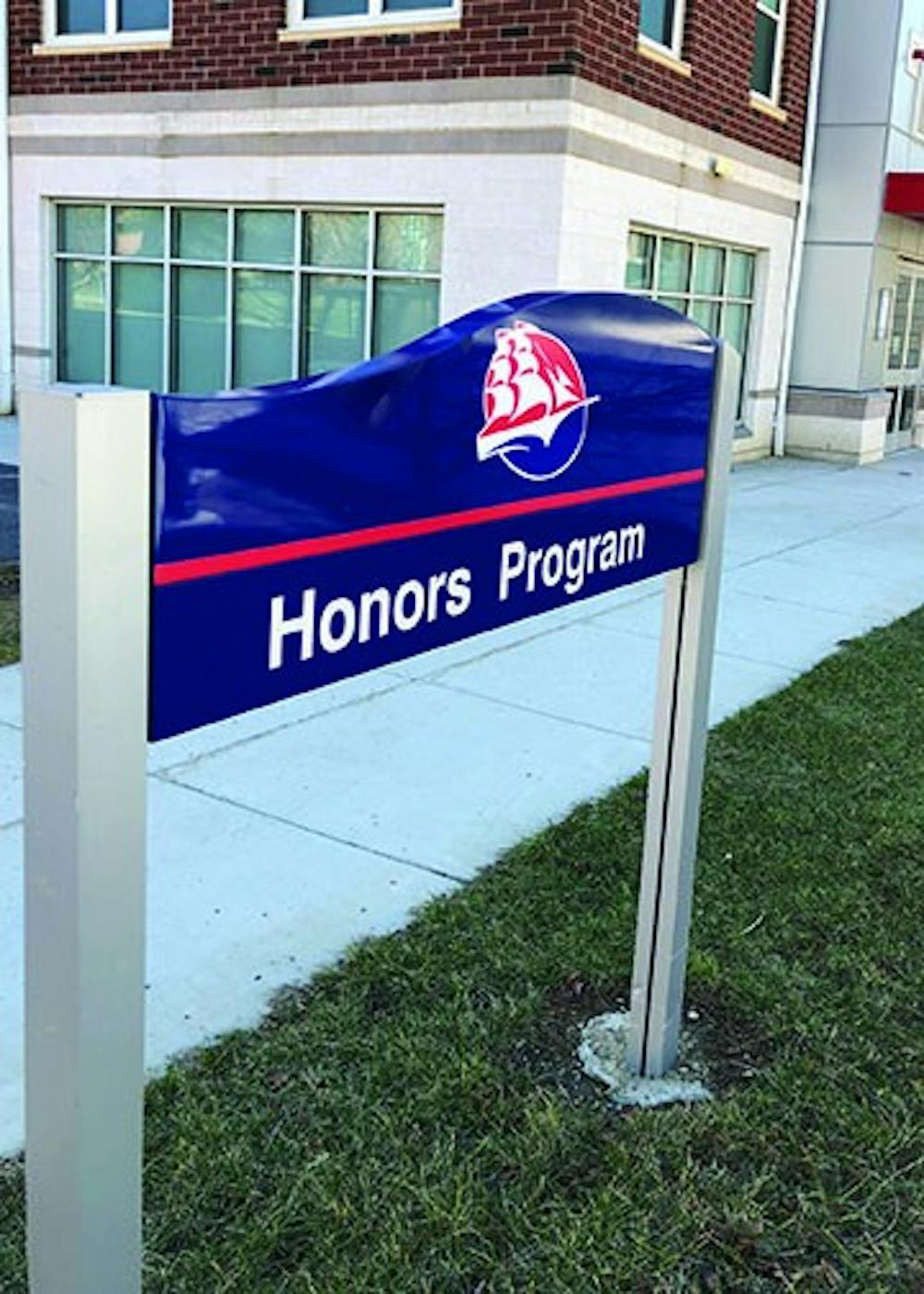Shippensburg University’s Honors Program will officially become The Wood Honors College in the fall of 2018, and the full curriculum change will take place in the fall of 2019, which also marks the 35th anniversary of honors education at SU.
The change comes after many years of effort from students and faculty.
Honors program director Kim Klein took the position of director in 2002. She looked at the standards the National Collegiate Honors Council (NCHC) uses to define the characteristics of honors programs and colleges, and noticed the program only met a few standards. It was then that she made her goal to meet more standards and make the program the best it could be for students.
“How can we best support each of our students,” Klein asked herself.
She used the standards as her guide, and once she met all of the honors program standards, she moved on to the honors college standards.
One standard to become an honors college is the integration of the honors college in residence life. In 2013, the honors program gained its own Living Learning Community (LLC) in Harley Hall.
Another standard, met in 2007, to become an honors college is to offer students an honors curriculum for all four years and to have them complete a capstone project in their senior year, according to Klein.
The curriculum that honors students are experiencing now is the same curriculum students will experience when the honors program becomes an honors college. Most aspects of the honors college will remain the same because Klein has been working on meeting the standards of an honors college for more than a decade.
Klein said the transition to an honors college will better reflect students’ experiences. She also hopes that becoming an honors college will increase enrollment.
A new addition being introduced with the honors college is an advisory council composed of honors alumni and friends.
The council will support the honors college and honors college students by creating new opportunities for students, such as new internships and study abroad opportunities, according to Klein.
In the fall, an honors version of the University 101 course will be offered to honors college students, which will give them more specialized honors advising. Klein hopes this will form a community of scholars.
“A community of scholars is one where students support each other and challenge each other as well,” she said.
Honors classes will remain small with about 20 students per class, but as enrollment increases, Klein hopes to add more classes.
Along with the students and faculty that worked continuously, Klein attributes the transition to SU President Laurie Carter and Provost Barbara Lyman.
“Without their support, this would not have happened,” Klein said.
SU junior Rachel Smith has worked in the honors program office for two years, is the co-chair of the honors program recruitment committee and represents the honors program on Carter’s Student Advisory Committee.
Smith provided the student perspective when Klein created the proposal, and she also helped out during her office hours.
“I have always known it was hopefully on the horizon, but I didn’t know I would get to see it happen during my time at Ship,” Smith said.
Smith said the transition is about ensuring that students are recognized for the work they do. The term “honors college” has a clear distinguishability that students and the college are being held to high standards.
“I am incredibly proud of the work our students do, and my hope is that when they are applying for jobs and graduate programs, having the term ‘honors college’ on their resume will accurately convey the amount of effort they have put forth in their undergraduate career,” Smith said.
Smith agreed that growing the honors college and attracting more high-achieving students are both missions of transitioning to an honors college. She also hopes to see some effects it has on the recruitment process.
She said the best part of college has been the honors program. Living in the LLC for two years allowed her to make friends and gave her a strong foundation for her college career. The program has also allowed her to engage in leadership opportunities, research and fun. Smith will be traveling to Vienna and Sarajevo this spring with honors students from other Pennsylvania State System of Higher Education (PASSHE) schools.
SU senior Cody Olson said the honors program has also opened new connections for him, and he identifies as an honors student more than a business student.
Olson has been a member of the honors program since his first semester at college, and he serves as a leader with the honors program’s club Reach Out. Reach Out allows students to travel to the Dominican Republic and teach classes. Olson has traveled with Reach Out twice.
He said he brought up the idea of transitioning to an honors college with Carter at a monthly Student Advisory Council meeting. He has also provided some ideas to Klein to get the ball rolling.
“I think being a part of an honors college would strengthen that identity for students like me and instill new comradery and pride for many others,” Olson said.
Olson attributes the honors program for getting involved on campus and being a campus leader. He plans on attending graduate school for higher education and student affairs, and said the honors program gave him the academic and leadership background he needs to attend some of the best schools in the country.
“I would not be the successful student I am today without the honors program, and it is hard to put into words how grateful I am,” Olson said.
The honors program accepts applications from high school seniors, first-semester freshmen and second-semester sophomores.
For more information about the honors program visit http://www.ship.edu/honors/.




The Slate welcomes thoughtful discussion on all of our stories, but please keep comments civil and on-topic. Read our full guidelines here.